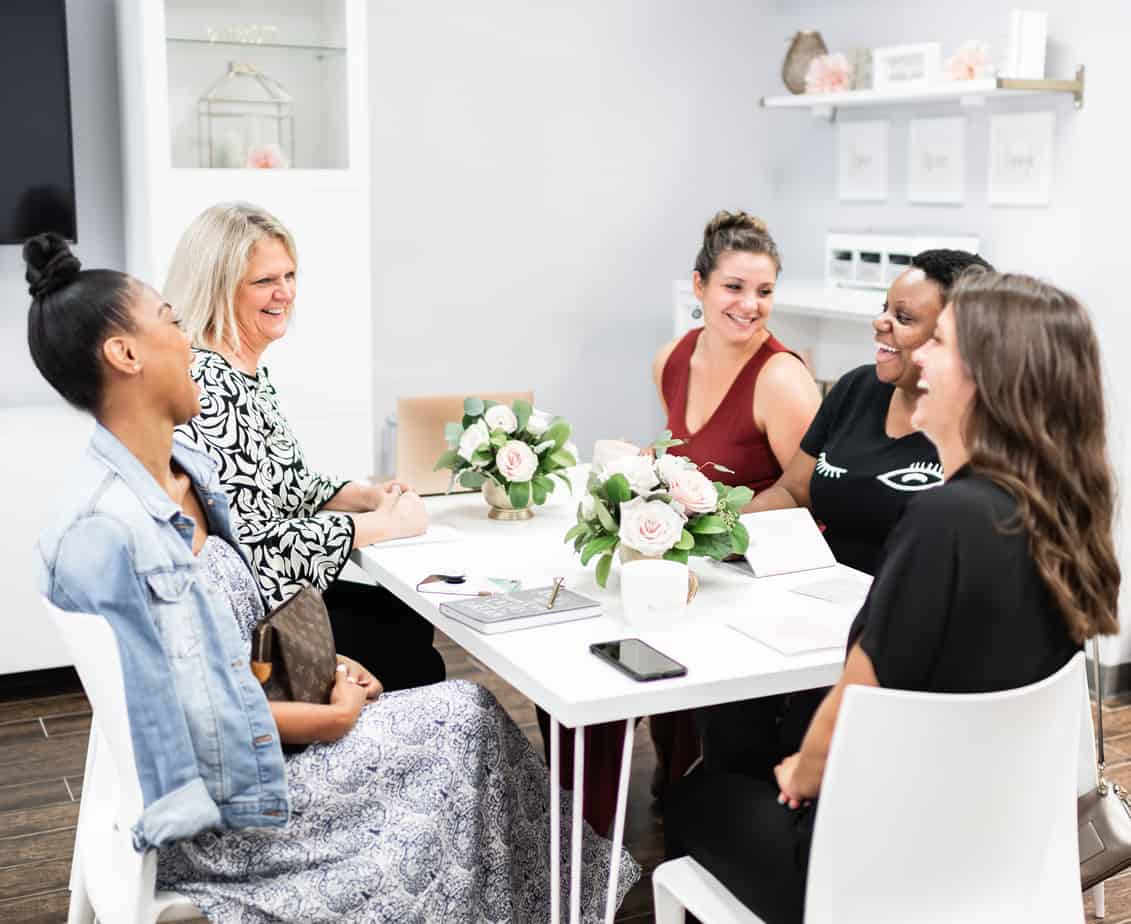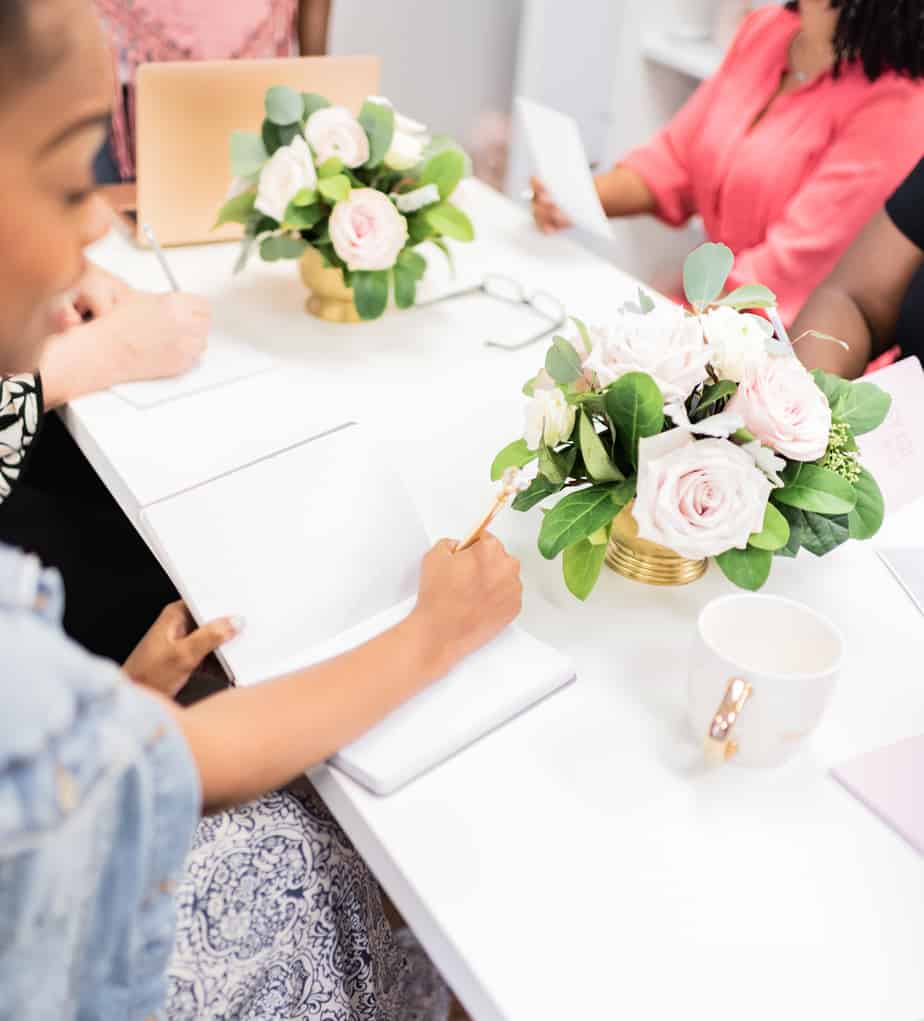No matter how much a person has achieved, we all struggle with the occasional temptation of feeling inferior and doubting ourselves. We all wrestle with the temptation to compare ourselves to others in life, and at times it seems like the problem is only getting worse with the rise of social media.
Why do I Compare Myself to Others?
We live in a world that is constantly bombarding us with images of perfection. Whether we are scrolling through our feeds on social media, flipping through a magazine, or watching a commercial, we are constantly bombarded with messages about how we should look, act, and feel. It’s no wonder that so many of us find ourselves comparing ourselves to others.
Comparison is natural, and it happens everywhere: In school, in work, and even online. But comparing yourself to others — whether you realize it or not — makes you feel worse about yourself. And according to research, it could actually make you less happy.
This constant stream of comparisons leads us to question aspects of ourselves. They tell us that we aren’t good enough, that we don’t look hot enough, or that we don’t have enough money.
The problem with comparisons is that they are rarely accurate. We compare our worst qualities to other people’s best qualities. We compare our own life experiences to those who have had much different experiences. And, most importantly, we compare our own journey to someone else’s destination. The Comparison Game is one that we can never win because the odds are always stacked against us.
What Happens When We Compare Ourselves to Others
Whether we’re comparing our appearance, our accomplishments, or our possessions, it’s only natural to want to see how we measure up. But what happens when we compare ourselves to others too much?
For starters, comparing ourselves to others can lead to feelings of inadequacy. If we’re constantly seeing other people who appear to be more successful or attractive than us, it’s only natural to start feeling down about ourselves. We may start to doubt our own abilities and wonder why we can’t measure up.
Comparing ourselves to others can also create a sense of competition instead of cooperation. If we’re always trying to one-up the people around us, we’re likely to alienate those same people. And even if we are able to come out on top, the victory is likely to be hollow since it was achieved at the expense of others.
When we start comparing ourselves to others, we start seeking their approval and validation, for both internal feelings and external actions.
We begin to feel worse about ourselves and wonder why we can’t have what others do. This makes us lose perspective on the real value of things and causes us to go into a vicious cycle of chasing after people’s acceptance instead.
Here are some consequences:
1- Distorted perception of yourself and the world.
2- You don’t feel loved, you just seek others’ approval.
3- Being less happy and more anxious.
4- Being afraid of making mistakes, being judged, or being rejected.
5- Being afraid of not being good enough
15 Ways to Stop Comparing Yourself to Others
1. Learn Your Triggers
The first step to overcoming comparison is to know what your triggers are and get in the habit of avoiding them.
If you hang out with a group of people who make you feel inferior and you’re always feeling tempted to compare yourself to them, maybe it’s time to find new people to spend time with who make you feel good about yourself.
If social media is a big trigger for you, as it is for many people, maybe log out of your accounts for a few days and see how you feel.
2. Deflect Negative Thoughts Early
As soon as you see those thoughts coming, don’t give them a chance to hook you – deflect them immediately before they grab hold. Try coming up with a mantra that you can repeat to yourself in these moments – it should be something that reminds you not to give in to comparison.
You might tell yourself, “My life is awesome the way it is,” or “I don’t need to compare myself,” or even something very straightforward like, “Here come those negative thoughts again.”
Your mantra can be anything that will help you identify the bad thoughts quickly and remind you to get them out of your head before you end up in a self-defeating spiral of comparison.
3. Focus on Your Strengths
When you’re tempted to compare yourself to others, it is crucial to remember that you have strengths too. In fact, there are probably other people out there comparing themselves to you, the same way you’ve been comparing yourself to other people.
Think of something you’re good at and focus on that area of your life. Remind yourself of a recent accomplishment or something you’re proud of.
Call to mind a compliment someone has given you. Focus on your own strengths, and those thoughts of comparison will melt away.

4. Don’t Guilt Yourself
Don’t get down on yourself if you catch yourself drifting back into thoughts of comparison. This will happen from time to time, and it’s important not to get discouraged, as this will only make matters worse. Do not guilt yourself.
Instead, deflect the comparative thoughts as soon as you realize you’re having them, and encourage yourself by thinking of something positive.
Remind yourself that you have so many great skills and strengths, and you don’t need to be like anyone else.
5. Accept Your Flaws
Everyone has flaws. Accept and own your flaws while trying to improve on areas of weakness. Some flaws represent areas in our lives where we could work to become better – like having a temper or being bad at public speaking.
Work on improving yourself if these are the types of flaws you’re worried about, but don’t get down on yourself in the process.
Remember that there is great strength in overcoming weaknesses and challenges, so channel your feelings into productivity and self-improvement rather than beating yourself up.
6. Realize No One is Perfect
The person you’re comparing yourself is imperfect just like everyone else, even though it may not seem like it. They have their own flaws and insecurities just like everyone else does.
Remember that they are human, with strengths and weaknesses and successes and shortcomings. Imperfection is the great equalizer – we all make mistakes, and we could all improve in some way.
7. Don’t Tear Others Down
Making yourself feel better by bringing others down is never the right approach. This does not solve anything – it makes a bold statement about your character (and not a positive one), and it hurts someone else in the process.
No matter how upset you may feel after another bout with comparison, resist the urge to tear the other person down. It will not help anyone or anything. It will only create more pain.
8. Remember It’s About the Journey
When you’re comparing yourself to others, you’re focusing on some arbitrary destination rather than appreciating the journey.
When you compare, you tell yourself that you need to get to the exact point where the other person is standing, and you will not be happy or complete until you get there.
If this is your approach to life, you’re going to be very unhappy, and you’re never going to enjoy the present moment.
Focus on the journey and enjoy it, and later you’ll look back and see not only how far you’ve come, but also how much fun you had along the way.
9. Surround Yourself with Support
You need to fill your life with good people who are invested in your best interest.
Find supportive friends who build you up and who remind you of how great you are, especially in the moments when you are tempted to compare yourself to others.
When you surround yourself with people who love and appreciate you for who you are, you’ll probably notice that comparing yourself to others won’t be as much of an issue in the first place.
10. Get Rid of Toxic Influences
If there is anyone in your life who reinforces the belief that you are not good enough, or that you need to be like someone else, that is a toxic influence.
This person is not helping your situation. Start by letting them know how you feel, and how their criticism of you affects your self-esteem.
If they care about you, they will find a more positive way to encourage you to be your best. If they are not interested in changing the way they talk to you, you simply do not need them in your life.

11. Take a Break from Social Media
Social media is a serious comparison trigger for many people. If you find that you are more inclined to compare yourself to others after spending time on Facebook or scrolling through your Instagram feed, take a time out.
Remember that what you are seeing on social media is a collection of highlights, proud moments, and accomplishments.
What you are not seeing is all the failures, disappointments, and struggles of those same exact people. You are only seeing the best moments of their life, and you are comparing that to the worst moments of yours.
Try signing out of your accounts for a few days and see how you feel. You might find that you feel much happier, and much less tempted to compare.
12. Do Something You Enjoy
One of the best things you can do when you want to compare yourself to someone else is to get out and do something you enjoy. Not only will this refocus your mind, but it will put you in your comfort zone.
Whether it’s running, painting, playing tennis, or whatever your hobby of choice may be, after a few moments of engaging in your favorite activity you will be reminded of the skills that come naturally to you.
13. Build Authentic Relationships
Spend your time and energy investing in good people who can help you better yourself. Maybe this is a mentor or a coach. Maybe it’s a friend or a family member. Maybe a teacher, or a professional in a field you have taken interest in.
Build relationships with people who make you better rather than giving your attention to people that make you doubt yourself. Your brain will catch on, and you’ll start having more good days than bad ones.
14. Work on Your Skills
One great way to beat comparison is to start honing your skills. If you’re an athlete, practice your sport. If you’re a writer, work on your novel.
If you’re a painter, get lost in your canvas. If you think you’ve gone as far as your raw skill can take you, enroll in a class or find a mentor who can help you get to the next level.
Work toward becoming great at something, and you’ll spend less time worrying about who may or may not be better than you.
15. Remember that You Are Enough
At the end of the day, wherever you are right now is enough. Not “enough” in the sense that you should never work toward anything again, but “enough” in the sense that you deserve everything good in your life, and you are doing great even before you take another step.
You were enough from the moment you were born, and you will be enough until the day you die. Your worth does not depend on your accomplishments, and who you are matters infinitely more than what you have done.
Why You Should Never Compare Yourself to Others
Comparing yourself to others is a surefire way to cultivate feelings of inadequacy and insecurity. Everyone has their own unique talents and strengths and comparing yourself to others only highlights your own weaknesses.
What’s more, everyone’s journey is different, and comparing yourself to others can prevent you from enjoying your own life. After all, there’s no point in living someone else’s life; you might as well live your own. So instead of comparing yourself to others, focus on honing your own talents and celebrating your own accomplishments. That way, you’ll be much happier and more successful in the long run.
Final Thoughts
While it is tempting in our culture to look to others for an indication of what we should be, the mentality of comparison is unhealthy and only makes us feel inadequate.
Rather than filling your mind and your newsfeed with reminders of why you’re not good enough yet, focus on surrounding yourself with encouragement and support for who you are and where you’re going.

